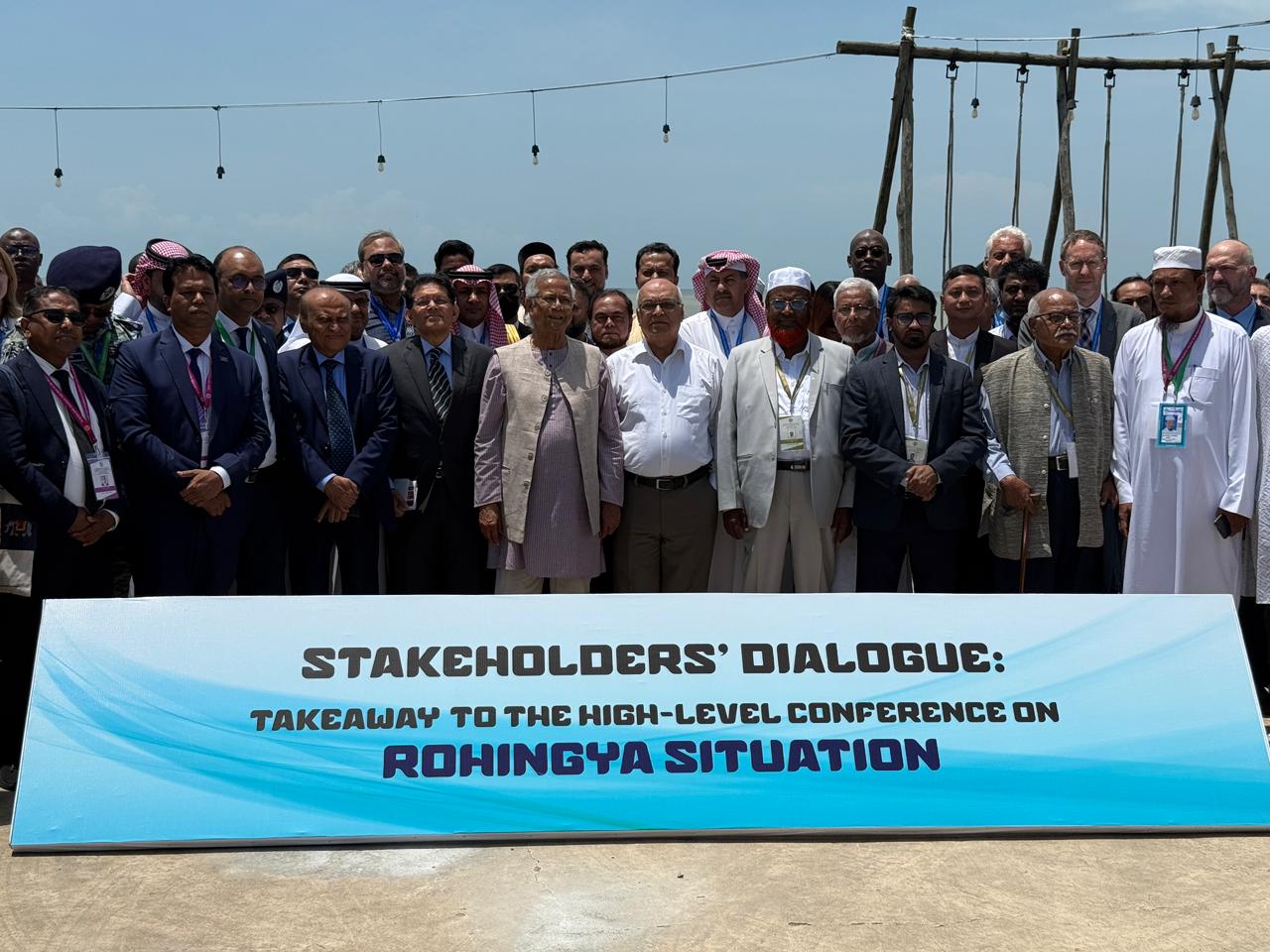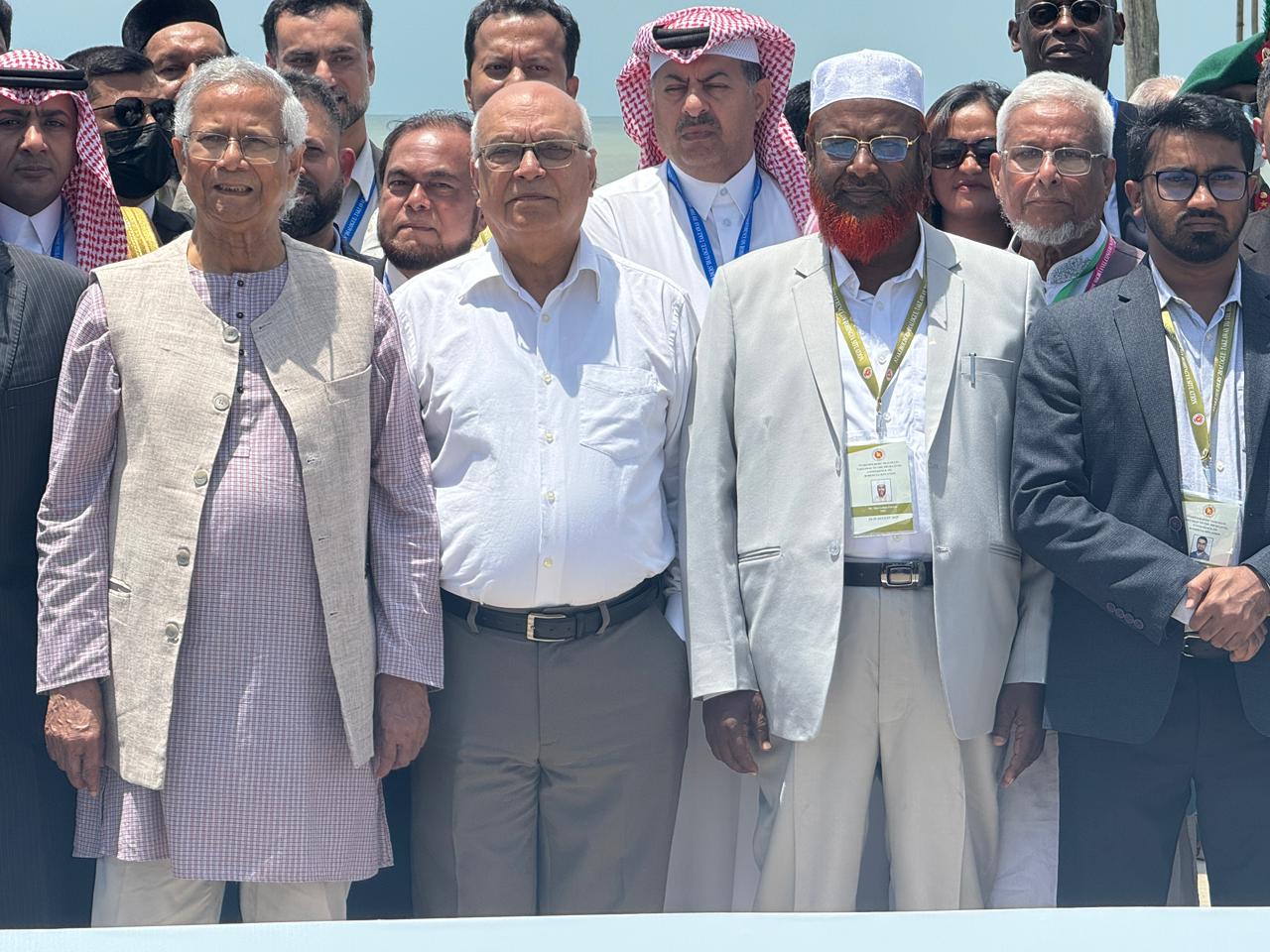Even after eight years since the Rohingya crisis unfolded in August 2017, the fate of displaced Rohingya refugees remains uncertain. Bound by the politics of repatriation and with little trust in the Myanmar government, nearly 1.2 million Rohingyas continue to live in Bangladesh, struggling for survival and dignity. Against this backdrop, the Stakeholders’ Dialogue and High-Level Conference on the Rohingya Situation was held from 24 to 26 August 2025 at Hotel Baywatch, Cox’s Bazar, bringing together senior government officials, international delegates, diplomats, development partners, and humanitarian organizations.
Purpose of the Conference
The three-day dialogue provided a platform to discuss collective commitments, strengthen partnerships, and share experiences in addressing the complex challenges facing Rohingya refugees and host communities in Bangladesh. Deliberations covered urgent humanitarian needs such as food security, shelter, healthcare, and education, while also emphasizing long-term strategies to enhance resilience and stability.
High-Level Presence
The event was marked by distinguished participation, including a special appearance by Prof. Muhammad Yunus, Chief Advisor of the People’s Republic of Bangladesh. His presence, alongside senior political leaders and international delegates, reflected the government’s determination to keep the Rohingya issue at the forefront of the global agenda. A photo session with Prof. Yunus, political leaders, and international policymakers symbolized unity and collective responsibility at the highest level.
International Cooperation
Representatives from Muslim countries, humanitarian agencies, and multilateral organizations—including the International Organization for Migration (IOM), UN Refugee Agency (UNHCR), International Committee of the Red Cross (ICRC), and more than one hundred local and international NGOs—attended the conference. Discussions also addressed terrorism, human trafficking, global peace, and regional security, recognizing that the Rohingya crisis is not merely a humanitarian emergency but also a challenge for international stability.
Commitments and Pledges
In his address, S. M. Rasheduzzaman, Chairman of SAWAB (Social Agency for Welfare and Advancement in Bangladesh), reaffirmed SAWAB’s commitment to humanitarian action, transparency, and accountability. He praised the Government of Bangladesh for hosting the Rohingyas despite immense challenges and called on international donors to extend sustained support.
The conference concluded with a collective pledge to:
- Strengthen partnerships between governments, NGOs, and international organizations.
- Mobilize greater resources to expand humanitarian and development interventions.
- Ensure more inclusive participation of Rohingya refugees in decision-making processes.
- Support host community development projects to promote social harmony.


SAWAB’s Representation
Chairman Rasheduzzaman highlighted SAWAB’s ongoing interventions in food distribution, shelter assistance, healthcare, WASH (water, sanitation, and hygiene), and education for displaced populations. He stressed the importance of sustainable approaches that safeguard dignity, strengthen resilience, and provide livelihood opportunities for vulnerable groups, especially women, children, and the elderly.
Key Discussions
Participants throughout the sessions underscored:
- The urgency of moving beyond short-term relief towards durable solutions.
- The necessity of enhancing community resilience and skill-building among Rohingya refugees.
- The importance of balancing humanitarian aid with support for host communities, who face increasing social, economic, and environmental pressures.
- The risks of prolonged displacement, including security concerns, cross-border tensions, and involvement of some Rohingya groups in crimes such as drug trafficking and human smuggling.
Looking Ahead
As the conference concluded, participants reiterated that the Rohingya crisis must not become a forgotten issue. It requires urgent international attention, sustained humanitarian support, and political solutions to ensure voluntary, safe, and dignified repatriation.
SAWAB reaffirmed its pledge to work in close cooperation with the Government of Bangladesh, donor agencies, and international partners to translate relief efforts into lasting impacts that uphold human dignity, strengthen resilience, and pave the way for sustainable peace.

